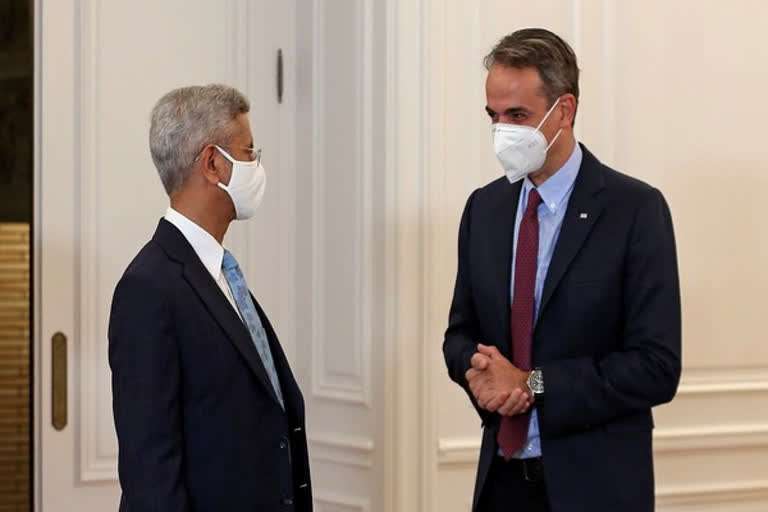New Delhi: In the historical context, India and Greece—both cradles of civilization—are no strangers. Besides trade and cultural ties and the barter of ideas, the political interaction was established on a firm footing when Alexander the Great and King Porus had their legendary exchange that made friends out of foes in 326 BC. In 2020, the India-Greece relationship scaled new heights with cooperation in the universal fight against the scourge of COVID 19.
To keep the friendship going and climb even greater peaks, a three-day visit by External Affairs Minister S Jaishankar—the first one by an Indian foreign minister in the last 18 years—that began from Friday is one that is laden with overtones of strategic intent. An MEA press release said on Saturday: “Both sides noted with satisfaction the convergence of each other’s vision for a free, open, inclusive and cooperative Indo-Pacific ensuring connectivity and growth for all in the region.” The release also added that recent developments “pertaining to the Eastern Mediterranean, Cyprus and Libya were also discussed”.
Greece faces an increasingly belligerent Turkey on its east that is trying its utmost to regain the prominence it once had including handling the reins of the Muslim world. Turkey’s fervent desire is also evident in the domineering roles it had recently played in the conflicts in Libya where it sneered off a German-brokered peace deal as also its partisan support to Azerbaijan against Armenia by standing up to Russia over the vexed Nagorno-Karabakh issue.
Read: Jaishankar refuses to indulge in 'political politics' of Rahul Gandhi during US visit
Of significant interest to India however, is a rising Turkish-Pakistan axis with one of their points of convergence being their respective stand on Kashmir. On February 14, 2020, Turkish President Erdogan speaking at Pakistan’s National Assembly and the Senate in a joint parliament sitting said: “Today, the issue of Kashmir is as close to us as it is to you (Pakistanis)… No distance can build a wall between the hearts of believers.” Besides adopting a position of unwavering support to Pakistan on Kashmir, President Erdogan’s call can also be construed as a call to the ‘Ummah’.
Read: Jaishankar thanks US for 'strong support' at India's 'moment of great difficulty'
Increasingly, Pakistan is also according a revisit to its own history by claiming kinship with the Turkish conquerors and negating the fact that their blood ties are more seminal with the people of India. Interestingly, Turkey has sounded out Pakistan for support in operating the strategically important Kabul’s Hamid Karzai International Airport by Turkey once the Americans withdraw by September 11, 2021. This is a role that the US wants Turkey to be involved in.
While indicating Turkey’s profound comprehension of the fact that Afghanistan affairs can’t be run without Pakistan’s open or tacit support given its proximity to the Taliban, it means India’s space to manoeuvre in Afghanistan may be getting more and more constricted.
Read: Jaishankar thanks US for 'strong support' at India's 'moment of great difficulty'



